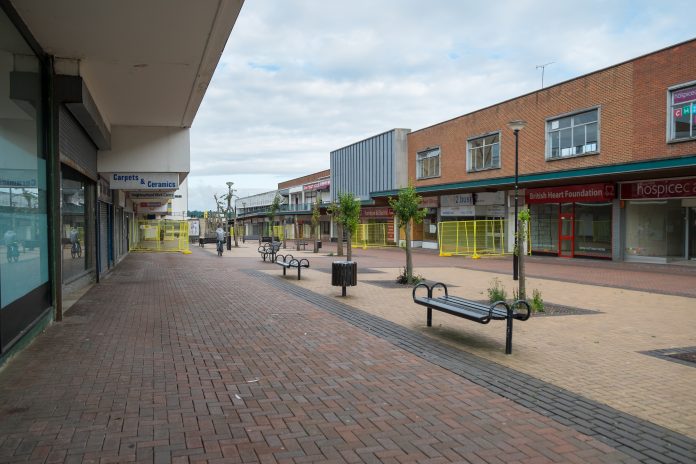The COVID-19 outbreak caused the UK to enter the deepest recession since records began, with GDP falling a staggering 20.4%
Due to decreased household spending plunged as shops shut and a decrease in factory and construction output, the Office for National Statistics (ONS) reported the economy shrank 20.4% in the three months to June, following a dip of 2.2% in the first three months of the year, the worst of any G7 nations.
This is the first official recession, defined as two quarters of straight economic decline, since the dark events of 2009.
April saw the largest impact on the economy caused by the closure of on non-essential businesses and services, however as restrictions were relaxed May and June saw month-on-month growth of 2.4% 8.7% respectively.
However, despite the growth in June, GDP still remains a sixth below its level in February when the virus struck.
The services sector, which is accountable for four-fifths of the economy, suffered the biggest quarterly decline on record.
Retail shops, bookshops and other non-essential retailers reopened in England on 15 June, while construction work increased after large declines in the two previous months.
Chancellor of the Exchequer, Rishi Sunak, said: “I’ve said before that hard times were ahead, and today’s figures confirm that hard times are here.
“Hundreds of thousands of people have already lost their jobs, and sadly in the coming months many more will.
“But while there are difficult choices to be made ahead, we will get through this, and I can assure people that nobody will be left without hope or opportunity.”
Data from July showed that there were 730,000 fewer people on payrolls since the lockdown started.
The UK’s reliance on social spending
The UK’s slump has experienced one of the biggest declines in GDP among advanced economies, according to preliminary estimates. The decline is almost twice the size of that in Germany and the US, but it is not as bad as the fall in Spain of 22.7%.
Reflecting on the UK recession revelations today, Julian Jessop, Institute of Economic Affairs expert, said:
“The fall in GDP in the second quarter was larger in the UK than in most other countries. This partly reflects the relatively large weight on services in the UK economy which are more vulnerable to social distancing restrictions.
“Looking forward, the key to a strong recovery will be the continued lifting of the lockdown – particularly the reopening of schools – and the return of consumer and business confidence. This requires clear and consistent messaging from government and a focus on allowing markets to work properly again, rather than further state intervention.”
The UK economy is much more dependent than the USA and other Europeans countries on social spending such as eating out and going to concerts.
Prime Minister Boris Johnson commented: “Clearly there are going to be bumpy months ahead and a long, long way to go”.
However, he also said parts of the economy were “showing great resilience,” and he had “absolutely no doubt” that government schemes would “help this country get through it”, adding: “it will get through it stronger than ever before”.











